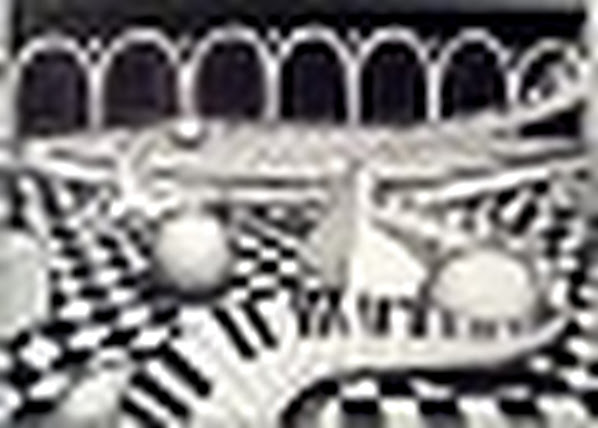 |
Welcome to the Piano World Piano Forums
Over 3 million posts about pianos, digital pianos, and all types of keyboard instruments.
Over 100,000 members from around the world.
Join the World's Largest Community of Piano Lovers
(it's free)
It's Fun to Play the Piano ... Please Pass It On!
|
|
|
|
71 members (36251, Bruce Sato, Carey, 20/20 Vision, AlkansBookcase, bcalvanese, brdwyguy, amc252, akse0435, 11 invisible),
2,080
guests, and
315
robots. |
|
Key:
Admin,
Global Mod,
Mod
|
|
|
|
Joined: May 2015
Posts: 81
Full Member
|
OP

Full Member
Joined: May 2015
Posts: 81 |
There are many places in a piece that one develops anchor points and they are usually (at least for me), at the beginning of a change or a new section in the song. Not necessarily at the beginning of a measure. I find the fingering that one chooses or is already chosen is logical and influences what the following notes fingering will be. Once someone has played a song enough, the fingering pretty much gets set in stone and then you always play it like that.
If I were to pick a random, point (that is in the middle of a section away from an anchor point and doesn't have any fingering written above the notes) and put my fingers on the notes, they will potentially not be the fingering I have decided. If this happens and I decide to play from this point, it will throw me off, my fingers might not be in a good position for the next notes and then I do a bunch of hasty jumping around the keys (most likely screwing up and making a few mistakes) until I'm back on track at a familiar point or a new anchor point.
The reason I used the term domino effect is because, the previous fingering leads to the next one and it is decided for the whole song. It's something I can go forward with (from an anchor point), but I can't just choose a spot, or go backwards much. I need the previous notes to set me up for the current notes, so if I don't have them, (in the case of choosing a random spot, or sometimes when I make a mistake), the song begins to crumble. This often happens with me when I make a mistake. When I hit a wrong key, it causes me to not be in the correct position for the next note (as per muscle memory goes), so the next note might also be wrong. Thus setting a chain reaction of error. I usually end up stopping and reassessing. I need to be able to recover fast. But I'm not sure how to practice for quick recovery. I know you have to keep going, but when I keep going from a mistake, I have entered the "starting from a random point situation". I lost the set up so I'm just in the middle of no where. Is part of recovery, the ability to play with alternate fingering?
Can any skilled pianist play from any given note in a song? Is it a skill I should be developing?
This is definitely a problem with playing a choral accompaniment. You can't stop when people are singing. Just gotta keep going.
I mean theoretically anyone could play twinkle twinkle little star (no chords, no bass clef, just single notes) with really weird fingering like using both hands and using your pinky for the first note and then your thumb for the second note and then middle finger of left hand for the next note. It could be done. And if you decided to play it that way all the time and that became muscle memory then when there is a change or a mistake, it could throw you off. (I suppose not with such a simple linear song).
Any comments welcome. Thank you.
|
|
|
|
|
Joined: Feb 2015
Posts: 4,033
4000 Post Club Member
|

4000 Post Club Member
Joined: Feb 2015
Posts: 4,033 |
There's a difference between sightreading and memorizing. Sightreading: - Keep going on even if you make a mistake.
- Don't worry about wrong notes.
- Don't worry about fingering.
Memorizing: - Stop and think before making a mistake.
- Write the fingering in the score and always stick to it.
|
|
|
|
|
Joined: Oct 2009
Posts: 2,515
2000 Post Club Member
|

2000 Post Club Member
Joined: Oct 2009
Posts: 2,515 |
I know you have to keep going, but when I keep going from a mistake, I have entered the "starting from a random point situation". I lost the set up so I'm just in the middle of no where. And there's a difference between practicing and performing. Practicing - make error...stop. reset and stick to one fingering Performing - keep going and get back on track any way you can.
Liebestraum 3, Liszt Standchen-Schubert/Liszt arr Sonata Pathetique-Adagio LVB Estonia L190 #7284 ![[Linked Image]](https://www.pianoworld.com/ABF_Medals/medal_c_5.jpg) ![[Linked Image]](https://www.pianoworld.com/ABF_Medals/5medals.jpg) ![[Linked Image]](https://www.pianoworld.com/forum/gallery/42/full/5781.gif)
|
|
|
|
|
Joined: Oct 2010
Posts: 17,275
Yikes! 10000 Post Club Member
|

Yikes! 10000 Post Club Member
Joined: Oct 2010
Posts: 17,275 |
When I hit a wrong key, it causes me to not be in the correct position for the next note (as per muscle memory goes), so the next note might also be wrong. Thus setting a chain reaction of error. I usually end up stopping and reassessing. I need to be able to recover fast. But I'm not sure how to practice for quick recovery. That's why you shouldn't just rely entirely on muscle memory, if you're playing from memory. But it's not clear you are talking about playing from memory. If you aren't, why can't you look at the score and pick up from where you hit the wrong note? If you can't stop because you're accompanying someone, keep strict time and get back on track with the right fingering as soon as possible. If you can't do that, it's because you don't know the piece well enough yet. Or you're not proficient enough at reading the notes on the page. Don't use fingerings in lieu of notes for reading from the scores. Never practice with different fingerings, unless you decide that your previous one isn't the best, in which case, change - permanently.
If music be the food of love, play on!
|
|
|
|
|
Joined: Jun 2011
Posts: 1,129
1000 Post Club Member
|

1000 Post Club Member
Joined: Jun 2011
Posts: 1,129 |
Just for the sake of the argument, in an interview to the BBC, Zimermann admitted that he might prepare and memorize few different fingerings for the pieces he is going to perform to be able to adapt to the acoustic of the place where he is going to perform.
I can understand and appreciate that as intermediate level pianist but I'm not going to do it because I still have to develop my chops to the point of being able to switch fingering in a reasonable amount of time.
Right now my teacher has me working on Bach editions completely without fingering to develop the ability to find a fingering that works with the musical message I want to communicate. BUT as I find it, I stick to it otherwise I keep making mistakes all the way through.
I can imagine that like for any other thing that I wasn't able to understand or do in the past and I can do now, with time and practice, it will be possible for me to do the same.
This to say that the way to performance practices is made out of many steps and more than once, after a certain skill is acquired, you go back and approach the same problem in a way that is apparently in contradiction with the previously learned skill, but later on will be obvious that the first one was the prerequisite to learn the second one properly.
The bottom line, you might want to think about this kind of approach while learning a Bach's partita, not Mary had a little lamb. There are other things to be learn with Mary. One is the ability to stick to a single fingering and go all the way trough without any error.
Last edited by Ataru074; 09/02/15 09:53 AM.
|
|
|
|
|
Joined: May 2015
Posts: 205
Full Member
|

Full Member
Joined: May 2015
Posts: 205 |
Whoa! I could have written this post. I have the exact same problem. If my fingers derail, so does my brain, it seems. I'm so used to my hands/fingers following a certain progression, that if it's interrupted, I have trouble getting back on track. I also have the bad habit of stopping, getting the correct notes under my fingers, then playing on. My teacher wants to beat me with a stick I'm sure.
So now, I have to keep playing no matter what happens, which can mean playing gibberish until I can gather my thoughts and fingers and get the piece rolling forward again. My teachers stresses rhythm above everything. So what I think is supposed to happen is that you stay in rhythm, get back on track (I have the score in front of me, so I focus on that), and hopefully the derailments get shorter and shorter? Anyone?
Bananasushi, do you have a teacher? I am curious how the teachers on this board would respond.
|
|
|
|
|
Joined: Jun 2011
Posts: 1,129
1000 Post Club Member
|

1000 Post Club Member
Joined: Jun 2011
Posts: 1,129 |
Whoa! I could have written this post. I have the exact same problem. If my fingers derail, so does my brain, it seems. I'm so used to my hands/fingers following a certain progression, that if it's interrupted, I have trouble getting back on track. I also have the bad habit of stopping, getting the correct notes under my fingers, then playing on. My teacher wants to beat me with a stick I'm sure.
So now, I have to keep playing no matter what happens, which can mean playing gibberish until I can gather my thoughts and fingers and get the piece rolling forward again. My teachers stresses rhythm above everything. So what I think is supposed to happen is that you stay in rhythm, get back on track (I have the score in front of me, so I focus on that), and hopefully the derailments get shorter and shorter? Anyone?
Bananasushi, do you have a teacher? I am curious how the teachers on this board would respond.
I started teaching beginners / early intermediates under the guidance of my teacher. The simple answer, you are going too fast, too soon. You need to fight that urge of "hearing" yourself playing the piece while you aren't ready yet. Practice small chunks hand separate and than hand together until they feel "solid like rock" and keep going until you have time or until you are tired. Then stop for the day or session are repeat moving forward. Keep it slow enough to don't make mistakes, use the appropriate phrasing, dynamics and ideas to communicate. It's a lot to absorb at the beginning but it does speed up later when you don't have to re-learn the right notes because you were making too many mistakes. We can spend weeks discussing and going to trial and errors to find what works for you to learn in the most efficient way.
|
|
|
|
|
Joined: Aug 2011
Posts: 6,272
6000 Post Club Member
|

6000 Post Club Member
Joined: Aug 2011
Posts: 6,272 |
. Is part of recovery, the ability to play with alternate fingering? No, not unless you're also playing alternate notes, improvising out of a fumble.
Can any skilled pianist play from any given note in a song? Is it a skill I should be developing?
Some may be able to start from any note from memory. To do it by reading, just pencil in *all* the fingerings you use on the chart. What is more practical is to have lots of possible entry points, but not every note, memorized. To do that, first break the music down into its natural phrases, and then break the phrases down into groups of notes that can be played with a single gesture. Short phrases may be one group, longer ones may be two or three, maybe more, depending on the music. Practice the groups over and over, one at a time. Each group of notes gives you a possible place to jump back in.
-- J.S. ![[Linked Image]](https://www.pianoworld.com/forum/gallery/42/thumbs/7588.jpg) ![[Linked Image]](https://www.pianoworld.com/forum/gallery/42/thumbs/7589.jpg) Knabe Grand # 10927 Yamaha CP33 Kawai FS690
|
|
|
|
|
Joined: May 2015
Posts: 81
Full Member
|
OP

Full Member
Joined: May 2015
Posts: 81 |
|
|
|
|
|
Joined: May 2015
Posts: 205
Full Member
|

Full Member
Joined: May 2015
Posts: 205 |
Whoa! I could have written this post. I have the exact same problem. If my fingers derail, so does my brain, it seems. I'm so used to my hands/fingers following a certain progression, that if it's interrupted, I have trouble getting back on track. I also have the bad habit of stopping, getting the correct notes under my fingers, then playing on. My teacher wants to beat me with a stick I'm sure.
So now, I have to keep playing no matter what happens, which can mean playing gibberish until I can gather my thoughts and fingers and get the piece rolling forward again. My teachers stresses rhythm above everything. So what I think is supposed to happen is that you stay in rhythm, get back on track (I have the score in front of me, so I focus on that), and hopefully the derailments get shorter and shorter? Anyone?
Bananasushi, do you have a teacher? I am curious how the teachers on this board would respond.
I started teaching beginners / early intermediates under the guidance of my teacher. The simple answer, you are going too fast, too soon. You need to fight that urge of "hearing" yourself playing the piece while you aren't ready yet. Practice small chunks hand separate and than hand together until they feel "solid like rock" and keep going until you have time or until you are tired. Then stop for the day or session are repeat moving forward. Keep it slow enough to don't make mistakes, use the appropriate phrasing, dynamics and ideas to communicate. It's a lot to absorb at the beginning but it does speed up later when you don't have to re-learn the right notes because you were making too many mistakes. We can spend weeks discussing and going to trial and errors to find what works for you to learn in the most efficient way. Thank you for that. I think you are right.
|
|
|
|
|
Joined: Jul 2012
Posts: 10,512
Yikes! 10000 Post Club Member
|

Yikes! 10000 Post Club Member
Joined: Jul 2012
Posts: 10,512 |
Interesting post. For me, of have to go back to a safe haven to recup. There can be several such places which serve as pick up points . . . but fingering is def. A tricky one!g
"I am not a man. I am a free number" " ![[Linked Image]](https://www.pianoworld.com/Uploads/files/Joplinbadgetiny.jpg) "
|
|
|
|
Forums43
Topics223,391
Posts3,349,282
Members111,634
| |
Most Online15,252
Mar 21st, 2010
|
|
|
|
|
|
|





![[Linked Image]](https://www.pianoworld.com/ABF_Medals/medal_c_5.jpg)
![[Linked Image]](https://www.pianoworld.com/ABF_Medals/5medals.jpg)
![[Linked Image]](https://www.pianoworld.com/forum/gallery/42/full/5781.gif)


![[Linked Image]](https://www.pianoworld.com/forum/gallery/42/thumbs/7588.jpg)
![[Linked Image]](https://www.pianoworld.com/forum/gallery/42/thumbs/7589.jpg)

![[Linked Image]](https://www.pianoworld.com/Uploads/files/Joplinbadgetiny.jpg) "
"